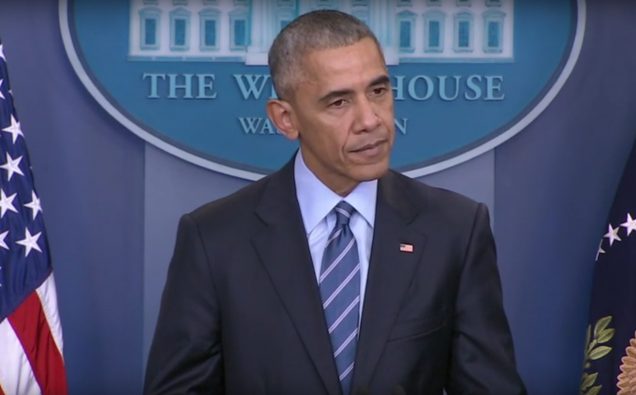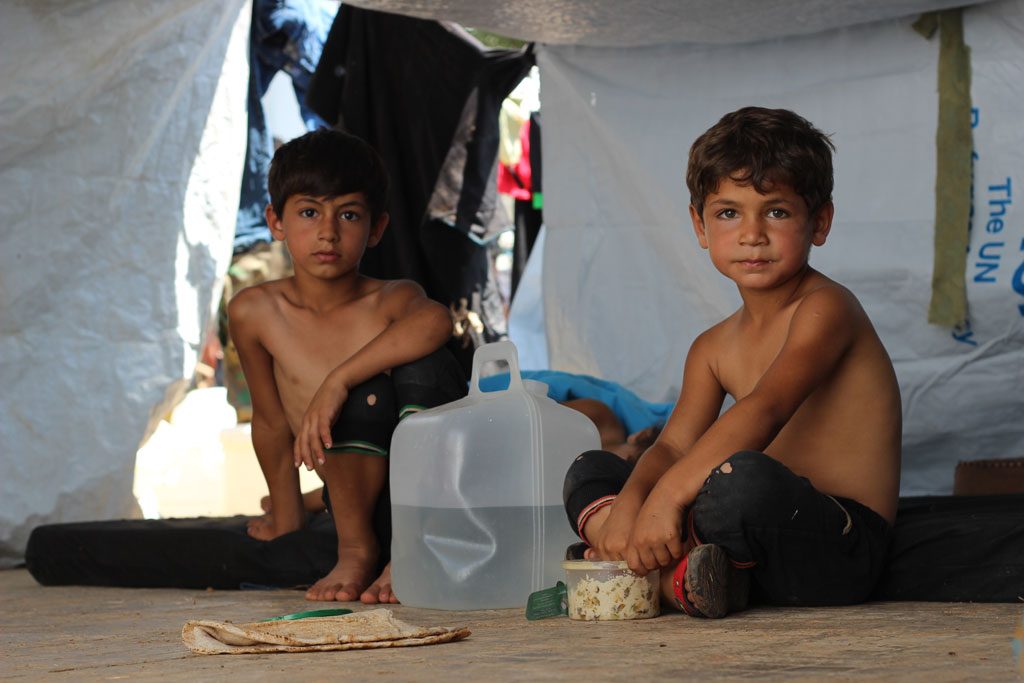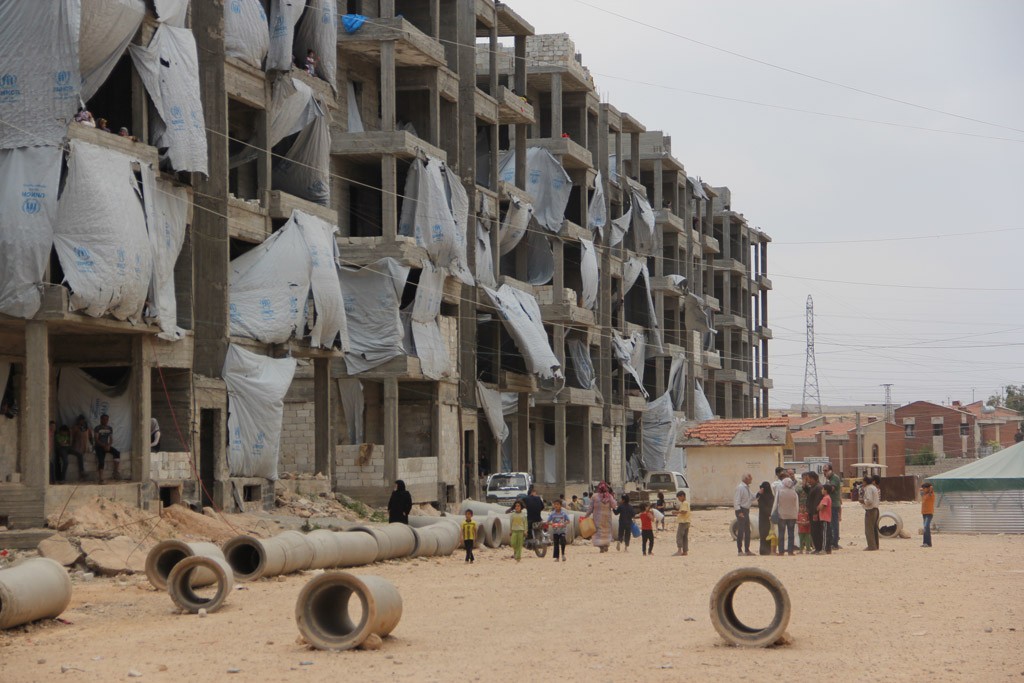
With the Syrian imbroglio likely to cast a shadow on his foreign policy record, President Barack Obama told a news conference that he has always felt responsible on the issue but defended his strategy to deal with the multi-layered crisis.
In probably his last White House conference with reporters just weeks away from concluding his eight year presidency, Obama also pinned down the blame for massacre of Syrians on Bashar al Assad, Iran and Russia.
Meanwhile, the United Nations has termed prolonged suffering of humanity in the over five-year-old Syrian conflict as a hole in the world conscience.
As heartbreaking images of civilians dying in Assad’s aerial bombings and at the hands of pro-Assad militia in Aleppo, international criticism of the White House and the United Nations’ handling of the Arab Spring related civil war has grown. Analysts say the terrible consequences of Syrian war will weigh heavily on Obama’s legacy.
The Syrian hot spot has also allowed Russia and Iran to besiege the entire Arab country, with women and children dying of hunger, bombings, bullets and diseases. Middle Eastern watchers have long believed that the Iraqi and Syrian conflicts gave birth to ISIS, allowed Iran to spread its state-sponsored militia operations and gave Moscow an opportunity to get a military foothold and influence in the Middle East. The crises also heightened Saudi Arabian-Iranian sectarian-driven enmity much to the detriment of the Muslim societies, where both minorities and majorities suffer from repercussions.
“I always feel responsible,” Obama responded when asked pointedly if, as leader of the free world, he felt moral responsibility for the ongoing carnage, particularly in Aleppo.

Children displaced from ongoing conflict shelter under makeshift tents on Muhalak highway in the western part of Aleppo, Syria. Photo: UNICEF/Khuder Al-Issa
“I felt responsible when kids were being shot by snipers. I felt responsible when millions of people had been displaced. I feel responsible for murder and slaughter that’s taken place in South Sudan that’s not being reported on partly because there’s not as much social media being generated from there.
“There are places around the world where horrible things are happening, and because of my office, because I’m President of the United States, I feel responsible. I ask myself every single day, is there something I could do that would save lives and make a difference and spare some child who doesn’t deserve to suffer.”
Obama said his administration sought to find a diplomatic and political solution to the Syrian war but admitted that he did not succeed.
“I understand the impulse to want to do something. But ultimately, what I’ve had to do is to think about what can we sustain, what is realistic. And my first priority has to be what’s the right thing to do for America.
“And it has been our view that the best thing to do has been to provide some support to the moderate opposition so that they could sustain themselves, and that we wouldn’t see anti-Assad regime sentiments just pouring into al Nusra and al Qaeda or ISIL; that we engaged our international partners in order to put pressure on all the parties involved, and to try to resolve this through diplomatic and political means.
“I cannot claim that we’ve been successful. And so that’s something that, as is true with a lot of issues and problems around the world, I have to go to bed with every night. But I continue to believe that it was the right approach, given what realistically we could get done absent a decision, as I said, to go in a much more significant way. And that, I think, would not have been sustainable or good for the American people because we had a whole host of other obligations that we also had to meet, wars we had already started and that were not yet finished.”
With respect to the issue of safe zones, Obama called it a continued problem.
“A continued challenge with safe zones is if you’re setting up those zones on Syrian territory, then that requires some force that is willing to maintain that territory in the absence of consent from the Syrian government and, now, the Russians or the Iranians. So it may be that with Aleppo’s tragic situation unfolding, that in the short term, if we can get more of the tens of thousands who are still trapped there out, that so long as the world’s eyes are on them and they are feeling pressure, the regime and Russia concludes that they are willing to find some arrangement, perhaps in coordination with Turkey, whereby those people can be safe. Even that will probably be temporary, but at least it solves a short-term issue that’s going to arise.”

In the Tishreen camp for displaced persons in Aleppo, Syria, residents go about their daily lives. Photo Courtesy UNICEF/Razan Rashidi
“Unfortunately, we’re not even there yet, because right now we have Russians and Assad claiming that basically all the innocent civilians who were trapped in Aleppo are out when international organizations, humanitarian organizations who know better and who are on the ground have said unequivocally that there are still tens of thousands who are trapped and prepared to leave under pretty much any conditions. And so right now, our biggest priority is to continue to put pressure wherever we can to try to get them out.”
Obama sadi Syrian war been one of the hardest issues he has faced as president.
“The world, as we speak, is united in horror at the savage assault by the Syrian regime and its Russian and Iranian allies on the city of Aleppo.”
He squarely held Assad and his backers responsible for bloodshed.
“We have seen a deliberate strategy of surrounding, besieging, and starving innocent civilians. We’ve seen relentless targeting of humanitarian workers and medical personnel; entire neighborhoods reduced to rubble and dust. There are continuing reports of civilians being executed. These are all horrific violations of international law. Responsibility for this brutality lies in one place alone — with the Assad regime and its allies Russia and Iran. And this blood and these atrocities are on their hands.
“We all know what needs to happen. There needs to be an impartial international observer force in Aleppo that can help coordinate an orderly evacuation through safe corridors. There has to be full access for humanitarian aid, even as the United States continues to be the world’s largest donor of humanitarian aid to the Syrian people. And, beyond that, there needs to be a broader ceasefire that can serve as the basis for a political rather than a military solution.
“That’s what the United States is going to continue to push for, both with our partners and through multilateral institutions like the U.N.
“Regretfully, but unsurprisingly, Russia has repeatedly blocked the Security Council from taking action on these issues. So we’re going to keep pressing the Security Council to help improve the delivery of humanitarian aid to those who are in such desperate need, and to ensure accountability, including continuing to monitor any potential use of chemical weapons in Syria. And we’re going to work in the U.N. General Assembly as well, both on accountability and to advance a political settlement. Because it should be clear that although you may achieve tactical victories, over the long term the Assad regime cannot slaughter its way to legitimacy.
“That’s why we’ll continue to press for a transition to a more representative government. And that’s why the world must not avert our eyes to the terrible events that are unfolding. The Syrian regime and its Russian and Iranian allies are trying to obfuscate the truth. The world should not be fooled. And the world will not forget.”

















